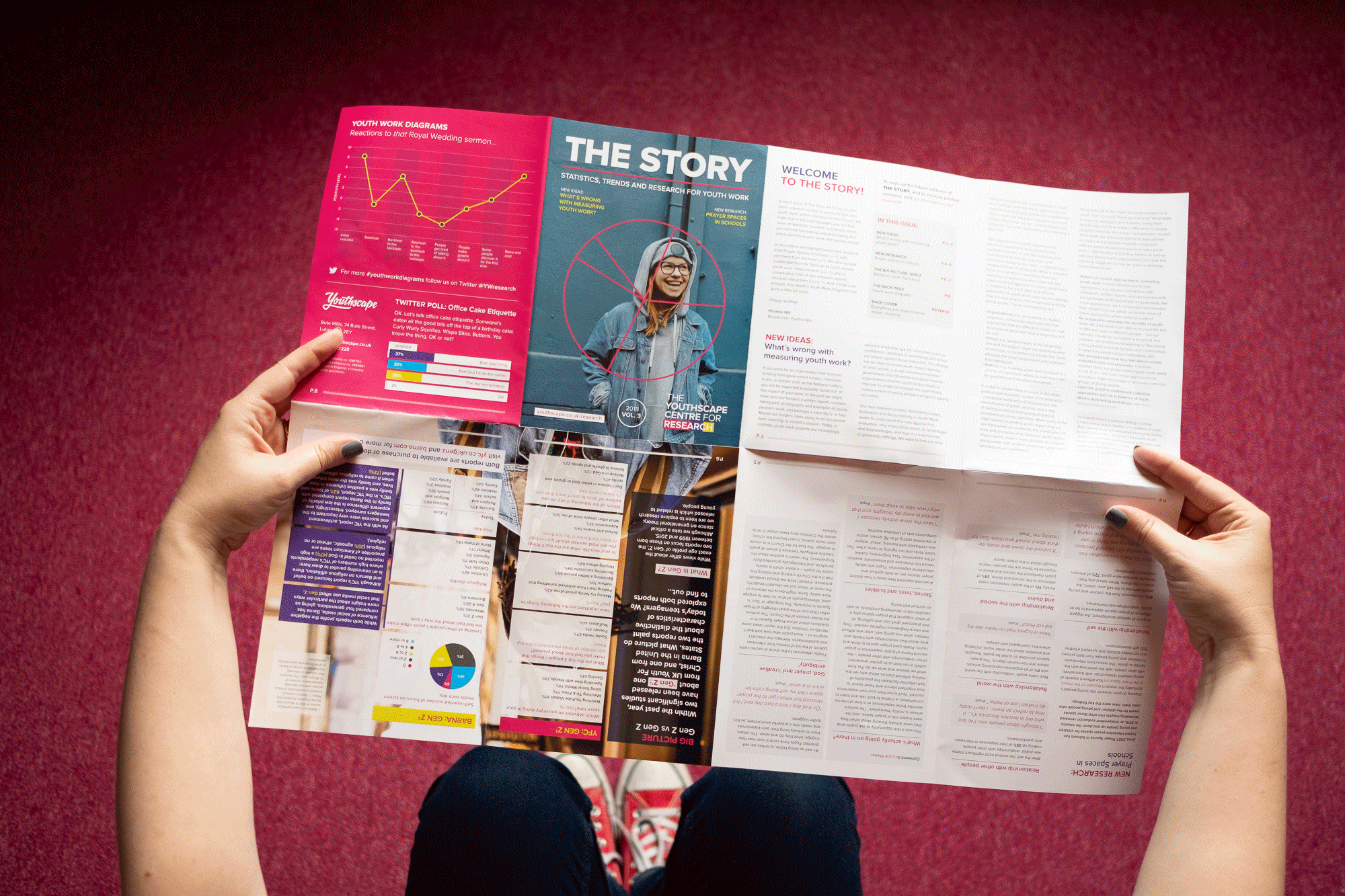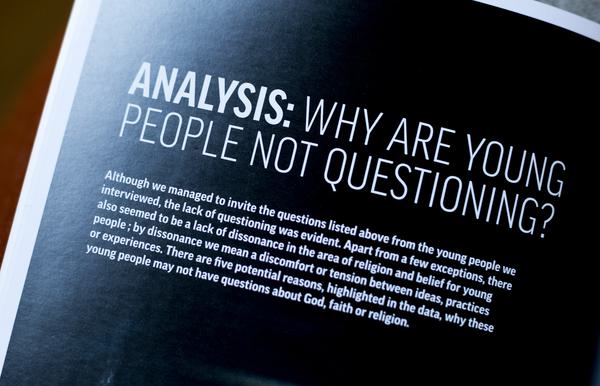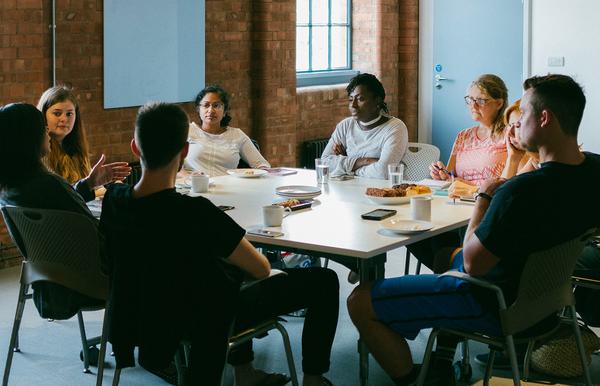Research isn’t just for academics. New knowledge can create insight, which is vital for working with young people across contexts. Lucie Shuker suggests three ways to make attentive research part of your work.
Youthscape has a Centre for Research because we believe that new knowledge can create insight, which changes how we see and what we do. We try and bring that evidence into conversation with theology and our ministry experience, grounding and applying it so that it becomes lived wisdom. But it’s unusual for a schools or youth worker to have access to a research team and your own time is limited. So how can you integrate the principle of applied insight into your work?
1. Understand context
Where are you?
“Wherever you are is called Here, and you must treat it as a powerful stranger.” (David Wagoner, ‘Lost’)
Place is significant. It’s all too easy to skim over the surface of our lives and never really understand or notice the place we are, and the people we are with. But across all sorts of disciplines there is growing awareness of the importance of being present, of noticing and having greater awareness of where we are. What’s it like where you are? What makes it special and distinct?
There is no one-size-fits-all
Knowing our context can help us resist the idea of one solution or model that universally works. There is a popular compulsion across all kinds of organisations to find out ‘what works’ and then share it with everyone, so everyone can do it.But the truth is that nothing just ‘works’, instead new things are introduced into different contexts and those contexts react to it – often in particular ways. People, spaces and relationships are unique. Why do you instinctively know you can try an Alpha course with this Year 9 group, but not the one down the road? Why do you adapt your assemblies to the school you are in, its challenges and your relationship with it? Because you understand context.
So when you look at your context, what do you see? What do you make of the landscape you’re in, and what questions could you put to your context in particular? If you’re about to start a new job with a new social context, some practices could help you understand this new setting from a research perspective.
First, try asking the same set of questions to key people with local knowledge/experience and wisdom, and to young people themselves. You could do this by running a creative consultation exercise with young people in schools, and interviewing people (teachers, heads, parents, youth workers etc) one to one.
"People, spaces and relationships are unique...when you look at your context, what do you see? What do you make of the landscape you’re in – what questions could you put to your context in particular?"
Second, find and analyse existing local data, both at the school level (governor’s minutes, OFSTED reports) and the local authority level (statistics on education, health, lifestyle etc.). There are some helpful links at the bottom of the page. Third, try a bit of ‘priestly listening’ as Richard Osmer calls it - just slowing down and making time to notice and reflect on what’s going on. Treat the place you’re in as a stranger. What is it like?
2. Use evidence
The second suggestion is to use evidence in your research. Whether you use statistics or hate research, it is part of our world and we consume it in all sorts of ways. Research can do several things. It can show us something we hadn’t seen before e.g. we were surprised to read a series of research reports that highlighted that it is young people, rather than the elderly, who are most likely to report feeling lonely. I’ve also been been fascinated by a YouGov poll showing that nearly half of young people do not identify as completely heterosexual.
Research can also contradict our beliefs and show us complexity. For example, it’s a popular assumption that smart phone use negatively impact mental health, but the jury’s still out in terms of most reviews of existing evidence. Teenagers are often viewed as engaging in risky behaviour as standard, but rates of alcohol consumption, teenage pregnancy, drug-use and smoking have all been declining in recent years. Researching a situation can change the way that we think about it; re-diagnosing the problem can prompt new approaches and new solutions.
It’s also the case that research can confirm our experience and help us to persuade others. We may have an intuition from personal experience and researching that on a wider scale can validate that intuition, refine our understanding and help encourage others to take it seriously.

When you’re approaching data try to come with an open mind, aware of your own assumptions and willing to change your mind. Then spend just slightly longer with evidence than you might normally and try to ask yourself: ‘What does this actually mean, and what does it mean for me?’
Our quarterly research publication The Story is full of recent trends in youth culture and analysis of them, as is our Research News blog. Take a look and try discussing some of the articles with others. What are you drawn to? What confirms your experience, and what surprises you?
3. Reflect on experience
Lastly, insight comes to us through our own experience, so we need to practise the art of reflection to actually discern what is happening and what can be done. Although we think we see the world as it really is, the truth is that we spend most our days not seeing. We delete and distort much of the information we receive, and we make meaning according to how we already to see the world. If we want to see it differently, we have to slow down, reflect and notice new things. Practical ways to do this could include journaling, or contemplative prayer tools like the Ignatian Examen. David Ford writes that “alertness to opportunities goes with trust in a God who is richly active through what is happening….There is always far more going on than we notice, so our attentiveness can never be too great”.
A theological perspective helps us ground this kind of attention in a peace that comes from God, so we’re focussed and disciplined without despairing or being statistic-obsessed. Again, David Ford puts it well:
“If the Bible’s encouragement to be alert, vigilant, watchful and awake is put together with equally frequent encouragement not to be anxious and fearful, then we have a recipe for a heart and mind ready to discern the right shaping of time, day by day.” (David Ford, The Shape of Living)
At the start of the new term the annual SchoolsworkUK conference was held here in Luton, for Christians working or volunteering in school. This blog post is an adaptation of Lucie’s presentation.
Places you can look for insight about your local context
Schools
- Governor’s minutes (should be publicly available, but this isn’t always the case)
- OFSTED reports https://reports.ofsted.gov.uk
- Gov.uk - create a My Schools list for your area, and explore/compare some key data (no. of pupils, performance, type of school etc) https://www.compare-school-performance.service.gov.uk
Local authority
- Public Health England data on young people by LA –https://fingertips.phe.org.uk/... Authority interactive toolkit https://www.gov.uk/government/publications/local-authority-interactive-tool-lait
- Cultural education data portal https://www.artscouncil.org.uk/research-and-data/children-and-young-peopleRun by the Arts Council
- Local government open data https://opendata.esd.org.uk







